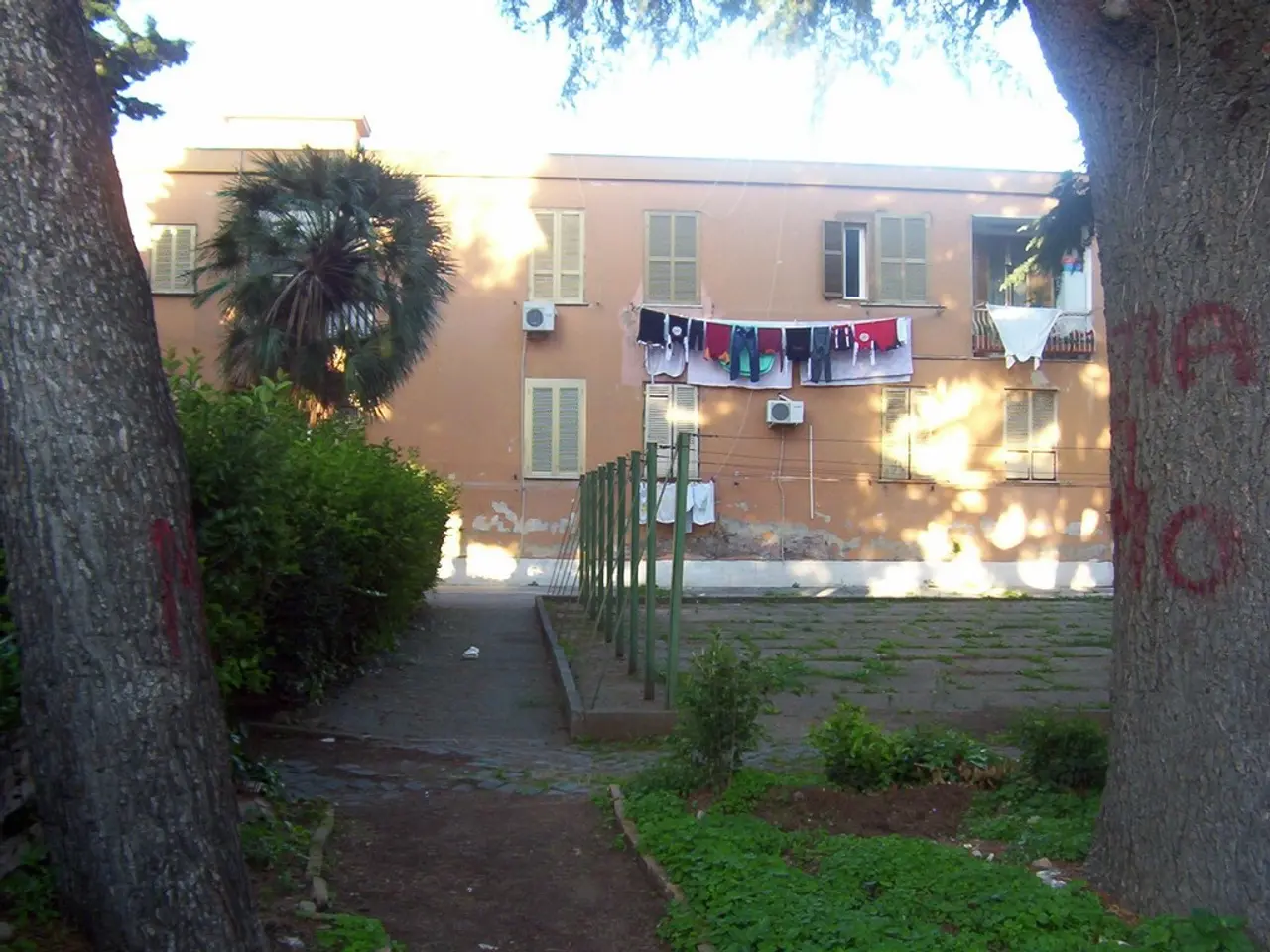Residents of Paris expressing frustration over lack of air conditioning in apartments
Paris, the city of love, is witnessing a shift in its approach to cooling as the city grapples with more frequent and intense heatwaves caused by climate change. Over the past two decades, the demand for air conditioning (AC) in Paris has more than tripled, reflecting the urgency to adapt to hotter summers[1].
Younger generations and many urban residents are increasingly embracing AC as necessary for health and comfort, especially in small apartments[1][2][3]. However, this trend presents several challenges.
One of the key challenges is energy consumption and sustainability. Products are now being designed for local markets to be quieter and more sustainable throughout their lifecycle, addressing environmental concerns[1]. Yet, increased AC use significantly boosts electricity demand, potentially exacerbating emissions unless powered by clean energy sources[5].
Another challenge is the social and economic disparities in AC access. Only about 20-25% of French households currently have AC, indicating uneven access. The financial burden of cooling can disproportionately impact lower-income households, though this is more prominent in global contexts. This creates a risk of "cooling poverty," where vulnerable populations struggle to afford adequate cooling—a concern relevant even in wealthier cities facing heatwaves[4][5].
Cultural resistance and political divides also play a role. Some segments of the population and political groups in France remain hesitant about adopting AC, preferring alternatives like fans due to ecological and social reasons. This reflects ongoing debates on balancing comfort with environmental impact[4].
Amidst these challenges, solutions are being sought. The Paris Climate Agency (APC), founded by city hall to help citizens with the climate transition, works to counter "catastrophic mis-adaptation" to climate change[6]. The APC advocates for solutions that are cheaper and more efficient than relying on air conditioning[7].
Building renovations, including changes to zinc-covered roofs, are among the solutions proposed by Dan Lert, in charge of the city's climate plan[8]. Anne Ruas, a researcher, expects air conditioning in Paris's private apartments to become more widespread in the coming years, but suggests finding the least harmful systems possible[9].
Marion Lafuste, a 40-year-old resident of northeast Paris, experienced temperatures up to 41C during a heatwave, finding relief minimal with ice packs and closed shutters. Despite her concerns about global warming, Lafuste has a place in the country to escape the heat but would have bought an air conditioner if she didn't[10]. Ruben Arnold, a 47-year-old father, installed AC in his home despite knowing its environmental impact, citing the need for it during extreme heat[11].
Despite complaints from foreign visitors about the lack of air conditioning in Parisian homes, a Gallic shrug is often the response[12]. Air conditioning is uncommon in Parisian homes due to being considered climate-unfriendly, wasteful, and unnecessary[13]. However, as heatwaves exacerbated by global warming cause resolves against air conditioning to crumble, the city is moving towards a future where AC may become a more common sight.
Sources:
- The Guardian
- BBC News
- The Local France
- The New York Times
- The Conversation
- Paris Climate Agency
- Le Monde
- AFP
- Le Figaro
- Reuters
- AFP
- The Local France
- The Guardian
- The escalating use of air conditioning (AC) in Paris, driven by concerns for health and comfort, particularly in urban areas, heightens the demand for environmental-science solutions to address climate change.
- One solution being advocated for is the adoption of sustainable and energy-efficient air conditioning systems, as increased demand may potentially aggravate emissions unless powered by clean energy sources.
- As Paris faces a growing number of heatwaves caused by climate change, the debate on the balance between comfort and environmental impact is becoming increasingly relevant, with some segments of the population embracing health-and-wellness innovations while others remain resistant due to ecological concerns.




